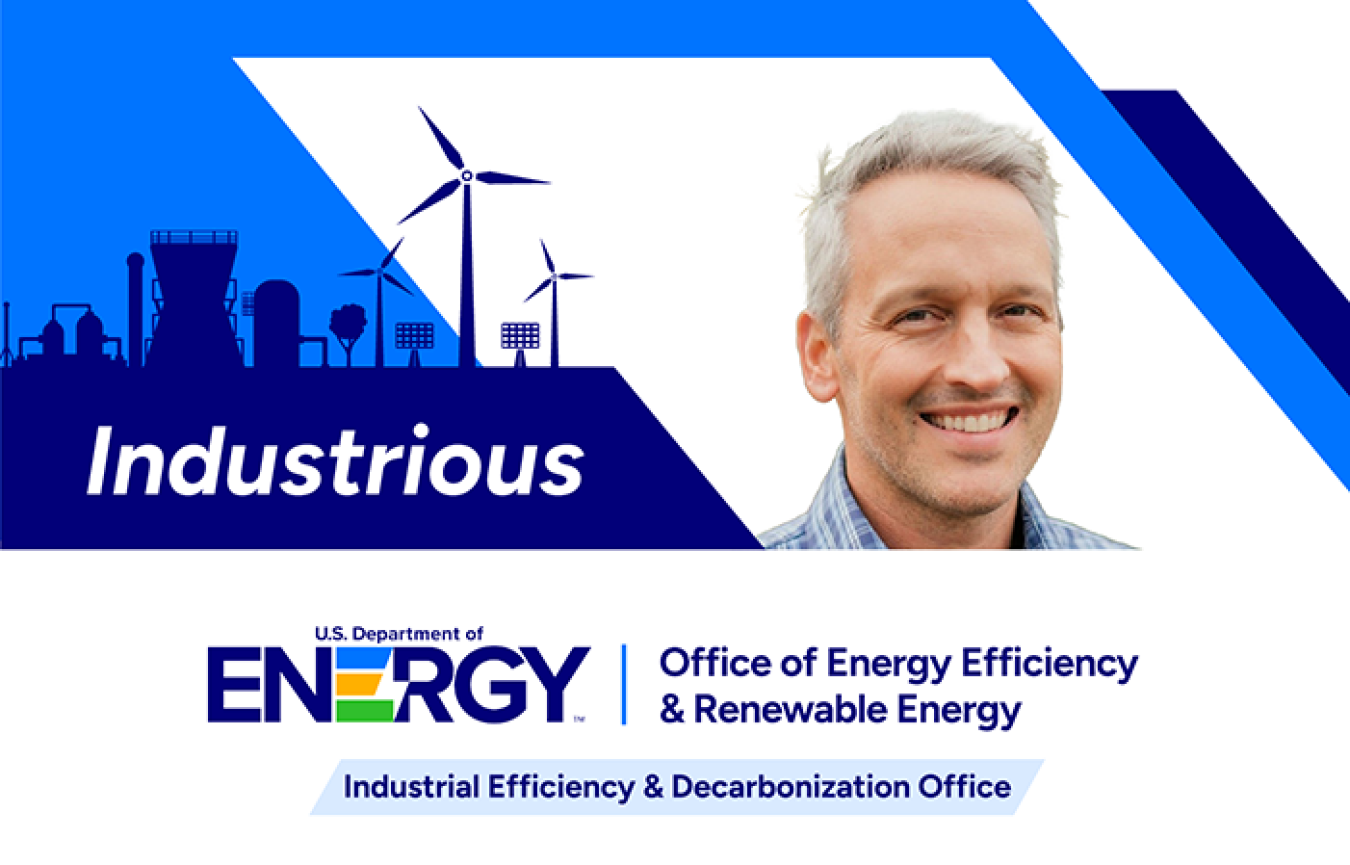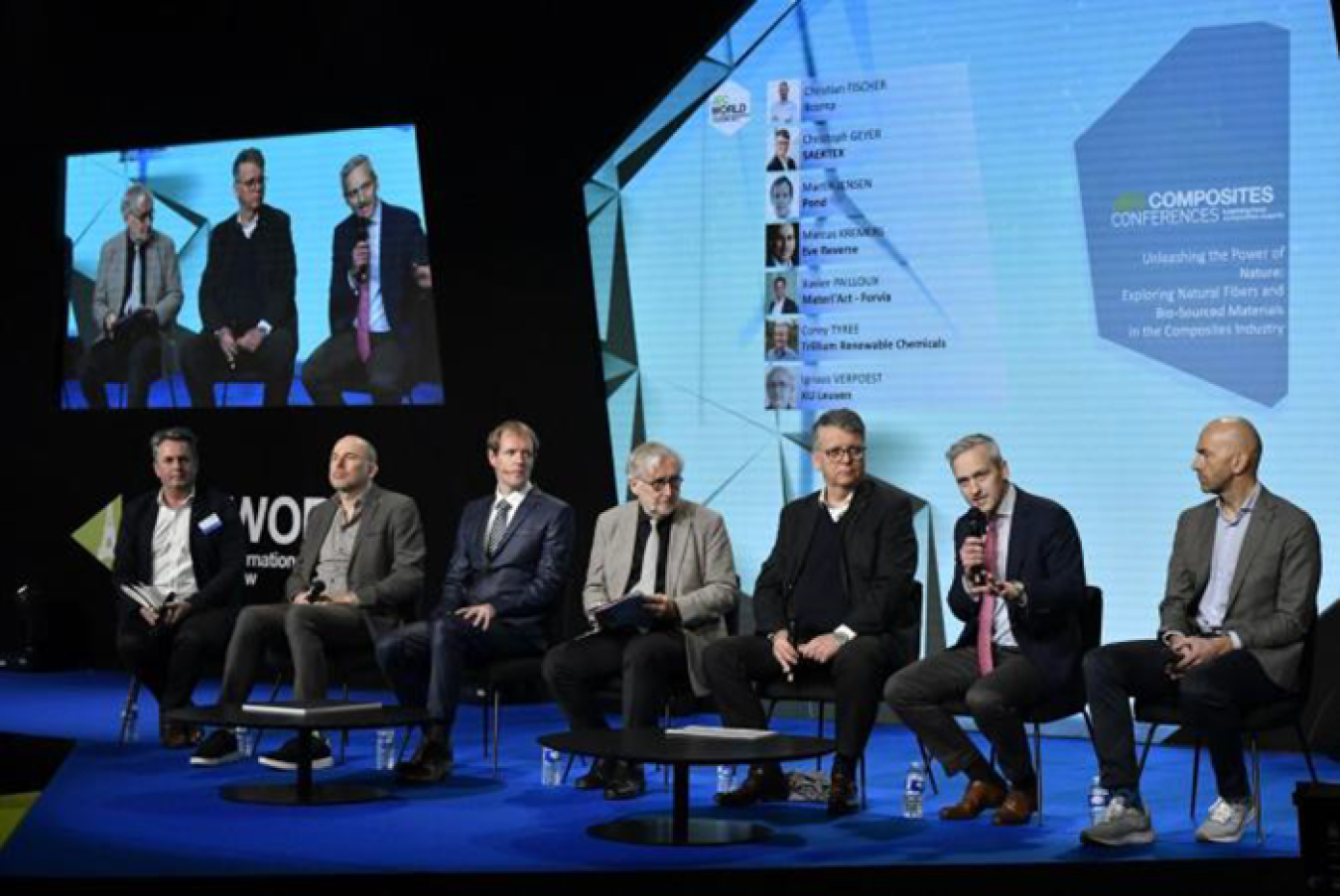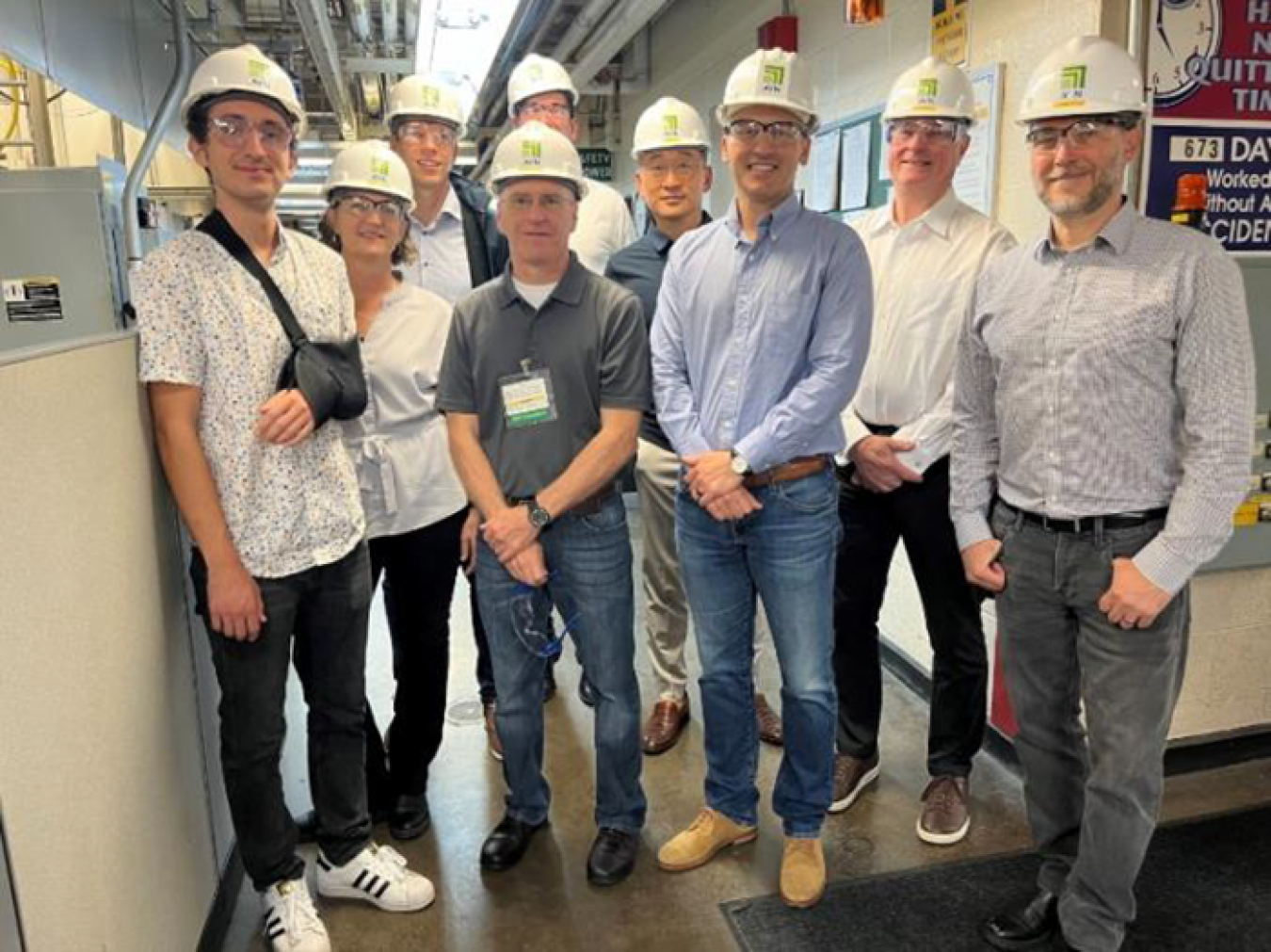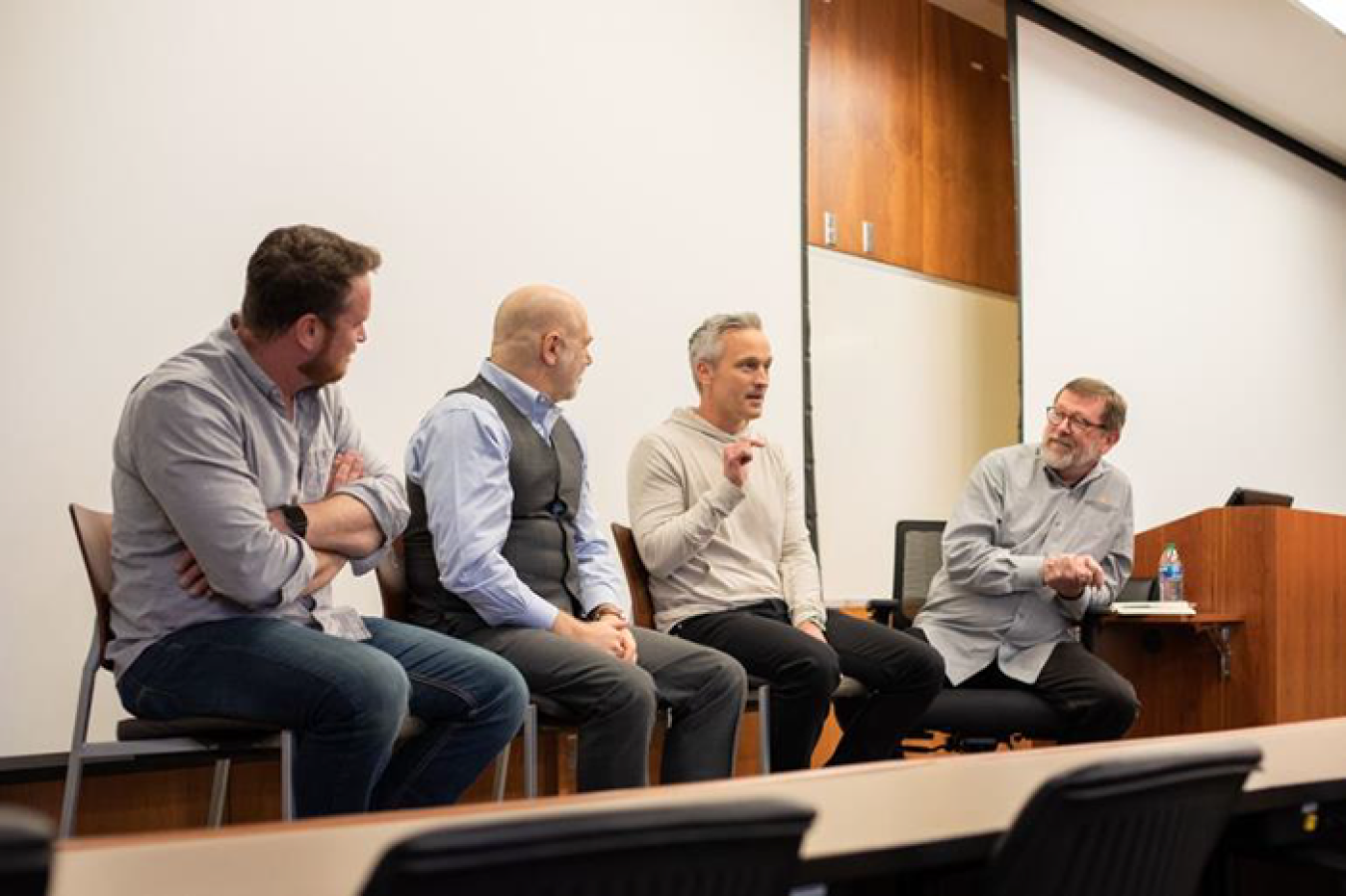Industrious series: Meet Corey Tyree, who shares in Q&A interview how curiosity led him from a rural town into engineering.
Industrial Technologies Office
November 13, 2024For a kid like Corey Tyree, growing up in rural Kentucky meant there weren’t many professional engineers or entrepreneurs to bump into. In fact, bumping into people isn’t common at all in Frenchburg, where the woodland creatures nestled in the rolling hills of Appalachia were his closest neighbors. So, when Tyree pursued a chemical engineering degree, it was more of a gut instinct—a curiosity about the unknown—that he followed after graduating high school.

"I had an aptitude for math, like my brothers, but I had never met an engineer. I was kind of an eccentric person, so choosing a mostly unfamiliar field like chemical engineering fit with my personality,” Tyree said of his choice, which also aligned with his interests and skills. “Engineering also represented something novel, something unfamiliar. That opportunity to choose the unknown is definitely something that attracted me.”
That adventurous spirit carried Tyree from an undergraduate degree to a Ph.D. in chemical engineering, followed by work in the energy industry. In 2021, he launched Trillium Renewable Chemicals, Inc., (Trillium) to meet the growing demand for renewable chemicals in chemical manufacturing. The following year, Trillium was awarded funding from the U.S. Department of Energy’s (DOE’s) Industrial Technologies Office (ITO) to scale up and de-risk a low-carbon version of acrylonitrile—a chemical used to create materials for cars, electronics, aerospace, toys, apparel, sporting goods, and water treatment.
Industrious
The Industrious series highlights outstanding individuals working with the Industrial Technologies Office to implement meaningful change in the industrial sector.
The project ties to ITO’s mission to accelerate the innovation and adoption of cost-effective industrial technologies. With DOE funding, Trillium has built an integrated pilot plant to demonstrate its de-risked technology, which produces low-cost bio-acrylonitrile. The technology’s reduced water intensity drives efficiency for one of the world’s largest volume chemical supply chains. Its plant-based feedstock process has a lower cost-per-kilogram than the state of the art and is also drop-in ready for the existing downstream supply chain.
In our Q&A with Tyree, he explains why Trillium’s latest milestone in the sustainable acrylonitrile project is so exciting and offers advice to the next generation of “eccentric” kids like him who want to follow their trailblazer instincts. This interview was edited for clarity and length.
You followed your curiosity into chemical engineering in college—something you knew little about. What was that transition like?
I was totally unprepared for college. I can laugh about it now, but at the time, to be honest, it was a little painful. My college transition was more like a crash than a transition. I think my interest, my aptitude, everything said, “Engineering,” but I was unprepared for the rigor of the engineering curriculum. By the time I graduated as an undergraduate, I had proven to myself that I could be a good engineer. I had always liked engineering, I just needed to learn the skills.
I think there are probably a lot of kids like me, who grew up in areas like Appalachia, who have aspirations and interests that point them in the direction of these fields. But getting through college can be a challenge if you’re unprepared. Luckily, I had lots of support and was able to see it through.

Corey Tyree (second from right) spoke at the global tradeshow JEC World 2024 in Paris, France, about the potential of natural and bio-sourced materials as viable alternatives to conventional composites.
You took that degree and moved into the chemicals industry, with a focus on renewable chemicals. What drew you to that topic?
It’s the right technology at the right time. This technology allows us to make an identical, drop-in renewable replacement. These kinds of technologies offer customers an opportunity to reduce reliance on fossil fuels without having to re-engineer entire supply chains. It was also the right moment in time to move this forward as there was significant market interest in renewable chemicals. So I felt like this had a great chance to succeed and it made sense to focus my time and energy on this topic.
The common thread throughout my whole career is that I worked with a lot of good people. I had a lot of good mentors—people who really helped me, very talented people. That was true in school and when I went to work in industry. So, the people I got to work with and learn from are part of what drew me into these industries.
The work I do here also feels worthwhile. There are tens of thousands of people working in these industries. Unlike in academia, where I worked on obscure research topics, these industries have lots of resources and there was an intense interest in my work, which made it feel worthwhile.
What inspired you to launch Trillium?
I’d seen different phases of technology development, and there was a lot of technology being invented, but the question was: “Why isn't more of it being commercialized?” There is an opportunity there. We need entrepreneurs to turn intellectual property (IP) into something real, and that “real” part is a company.
That became part of my job at Southern Research Institute. And one of their pieces of IP was the technology that later was licensed to Trillium. Somebody had to create a new company, and the company would receive the license to the IP and raise money, and that's what we did.

Corey Tyree (third from right) with Trillium employees and directors at their pilot plant, which successfully produced a plant-based, drop-in feedstock for acrylonitrile in a Summer 2024 customer trial.
One of Trillium’s main focuses is scaling the commercial production of acrylonitrile. What made you choose that product?
Acrylonitrile is not a new product, it’s been around for a long, long time. It's a very interesting product. It's used to make everything from Lego toys to carbon fiber used in aerospace parts, cars and sporting goods. It’s also in the acrylic fiber used to make sun umbrellas, sweaters, and blankets.
Acrylonitrile is typically made from petroleum-based feedstock, which Trillium wants to replace with a plant-based feedstock. We’re not creating a new product or a new chemical; it’s the same chemical, just made from a different feedstock so it has a lower carbon score.
It sounds like Trillium’s making it easy for the U.S. industry to transition to more sustainable materials. What kind of progress have you made on the DOE-funded project to build a pilot plant for sustainable acrylonitrile production?
This summer our DOE project hit a major milestone with a successful customer trial. We showed that we could meet customer specifications for the acrylonitrile product and then we shipped the product to our long-time partner, Syensqo, who is a subrecipient on the DOE award. Syensqo showed that when they polymerize our product into polyacrylonitrile (the precursor to carbon fiber), it performs identically to petroleum-based acrylonitrile.
That’s a huge deal. That means that customers can use the same product specifications that they’ve been using for many decades. Our plant-based feedstock is a drop-in replacement for petroleum-based feedstock for acrylonitrile that will perform the exact same way, and it won’t disrupt the current supply chain.

As CEO of Trillium, Corey Tyree (second from right) takes time to encourage the next generation of entrepreneurs. At “Inside the Entrepreneurial Mind,” an event organized for University of Tennessee, Knoxville, he gave students insight into startup life, Trillium, and what it’s like being an entrepreneur.
How do you plan to expand your success?
Currently, we're leveraging our DOE-funded project activities to build a scaled-up version of our technology in Texas, which we refer to as “Project Falcon.” This is tremendous progress for a company that is only three years old.
We went from a startup with no team, no site, no plan to show you—and now, in six months, we’ll be able to take you to America’s largest acrylonitrile plant, which is hosting Falcon. Our plant will be relatively small compared to our next-door neighbor, INEOS, but this is big step forward for Trillium in our mission to produce and sell acrylonitrile made from plant-based feedstocks.
What advice from your journey would you pass to the next generation considering jumping into a field they don’t know or launching a brand new company?
Engineering is a great field to work in. There are endless things to learn. It's very challenging. And you’re not going to be bored. It doesn’t really close any doors because there are so many different industries to work in. It has a lot of optionality.
Don’t let uncertainty get in the way of the right decision for you. Also, don’t underestimate your ability to learn new skills. Engineering and other STEM fields require skills that can all be learned by applying yourself in the classroom and working hard. Maybe you have to study more than others, especially initially as you catch up. But you’ll be glad you did if you are sincerely interested in these fields.
Want to know more about industrial technologies? Visit our homepage and subscribe to the ITO newsletter to read other Industrious Q&A interviews.

